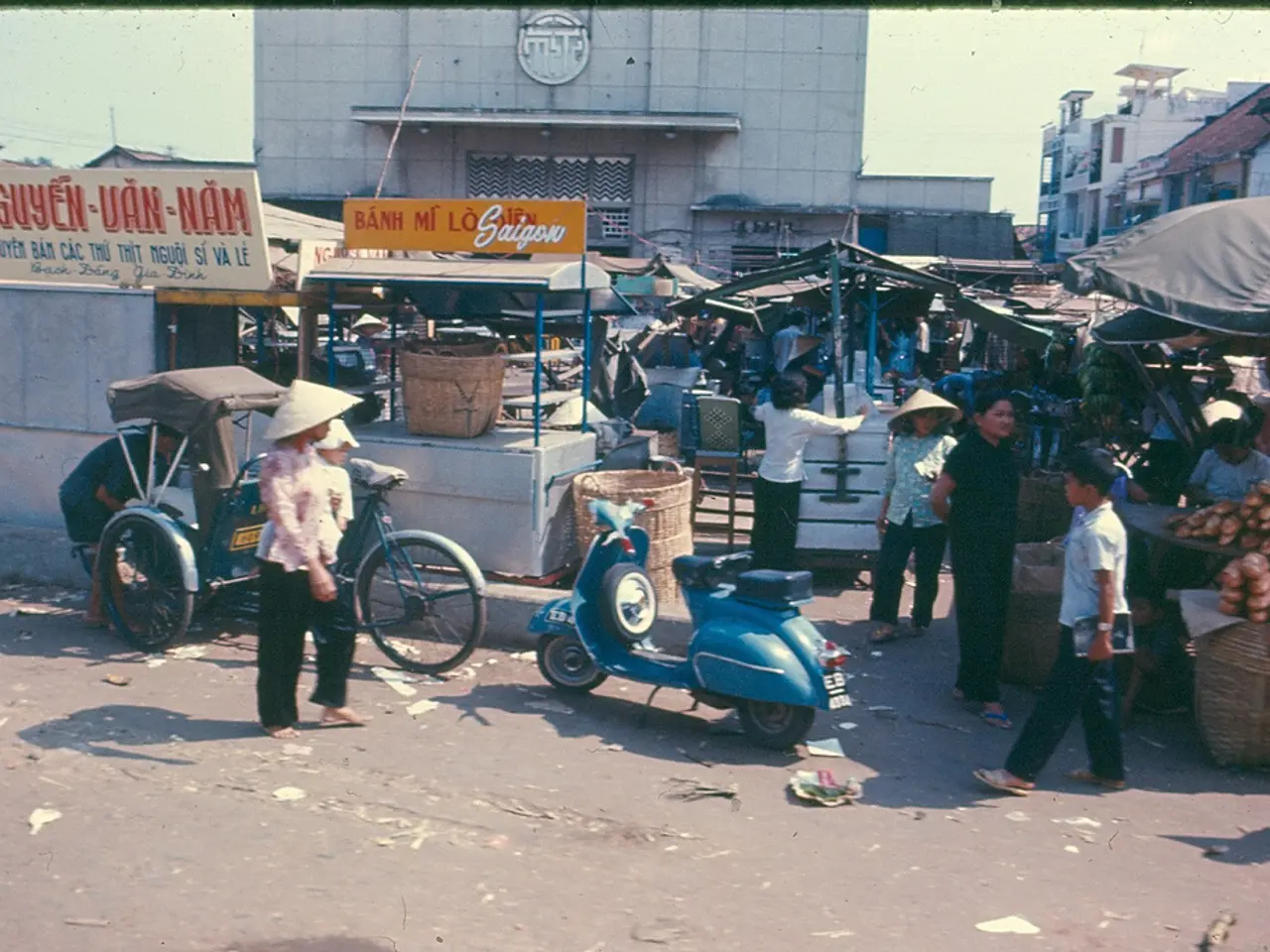Reusing Plastic Transformation - Anne Koudstaal's Approach to Recycling for Biking
In the quest for sustainable solutions, a Dutch company named PlasticRoad is making waves in the world of infrastructure. Founded by Anne Koudstaal, a visionary with a focus on sustainability and climate adaption strategies, the company aims to reduce flooding and plastic waste by creating roads from recycled plastic.
Anne Koudstaal, along with Simon Jorritsma, conceptualized the idea in 2013, with a primary goal of addressing urban flooding, a problem particularly prevalent in delta areas like Mexico City, Jakarta, and New York. Koudstaal saw the effects of extreme rainfalls and recognized the limitations of traditional storage systems.
Three years later, in 2016, the team, led by Marcel Jager, began developing prototypes for PlasticRoad. The prototype, developed with indisputably positive results, garnered increased support from potential partners. The first PlasticRoad prototypes were tested in an internal pilot trial in Utrecht in 2017, with overall positive reactions.
PlasticRoads are built with circular elements made from recycled plastic that have a hollow space inside, acting as a sewer system and storing up to 300 liters per square meter. This innovative design not only reduces landfill and environmental plastic pollution but also provides a much smaller carbon footprint than asphalt roads.
The implementation of PlasticRoads resembles building Legos, with detachable and lightweight connections that are quick and simple to install and easily replaceable. This modular design allows for better stormwater management, improving infrastructure durability and drainage capacity, and supporting better stormwater infiltration.
The first PlasticRoads were installed in 2018, consisting of two bike lanes of 30 metres each. Cyclists have complimented PlasticRoad by stating they don't notice any difference to a traditional road. The municipality of Rotterdam supported the idea, expressing interest if the project could be executed successfully.
The PlasticRoad solution addresses two significant urban and environmental challenges: plastic pollution and urban flooding. By repurposing large amounts of plastic waste—including typically non-recyclable types like multilayered packaging—into durable construction materials, PlasticRoad mitigates plastic pollution.
The modular Geocell systems inherently improve the subsurface drainage of roads compared to traditional impervious pavements, reducing surface water accumulation and thereby mitigating urban flooding risks caused by poor drainage under heavy rains.
India’s pioneering pilot projects near Delhi exemplify how integrating plastic waste into road infrastructure through advanced Geocell technology can simultaneously tackle these two significant urban and environmental challenges.
The concept of PlasticRoads has generated significant enthusiasm, with potential partners expressing interest after a press release in the news, including an article in The Guardian. As approximately 91% of plastic worldwide is not recycled, and around 8 million tons of plastic end up in the ocean each year, solutions like PlasticRoad offer a beacon of hope in the fight against environmental degradation.
In a unique collaboration, Dutch designer Daan Roosegaarde and the company dutch company Smits Neuchatel use photoluminising technology in several projects to light up roads and bike paths as an alternative to expensive road lighting, further enhancing the potential of PlasticRoads.
As of now, the first PlasticRoads installed are still in perfect shape, demonstrating the durability and resilience of this innovative solution. The future of PlasticRoads looks promising, with the potential to revolutionize infrastructure and combat environmental challenges on a global scale.
Science and technology convergence is evident in the creation of PlasticRoad, a trailblazing initiative in the field of environmental science. The Dutch company, founded by Anne Koudstaal, combines health-and-wellness concerns, such as urban flooding mitigation, with fitness-and-exercise considerations, as the roads are designed for cyclists. The innovative road system, built from recycled plastic, not only address climate-change issues related to plastic waste but also promotes sustainable living by reducing carbon emissions associated with asphalt roads.
The home-and-garden aspect is subtly incorporated into the design, as the PlasticRoads serve as a stormwater management system, resembling modular geocell systems found in gardens. These roads, with their hollow spaces that function as a sewer system, can store up to 300 liters per square meter, demonstrating their environmental benefits.
The potential of PlasticRoads extends beyond infrastructure, touching upon lifestyle choices. By adopting this technology, countries can demonstrate a commitment to reducing plastic pollution and urban flooding, aligning with global efforts towards a healthier and more sustainable environment.
The integration of photoluminescent technology in PlasticRoad projects, as demonstrated by Dutch designer Daan Roosegaarde, illustrates the intersection of science, technology, and art, thus enhancing the overall potential of these roads. As PlasticRoads continue to prove their durability and resilience, they offer a promising solution for sustainable living on a global scale.




